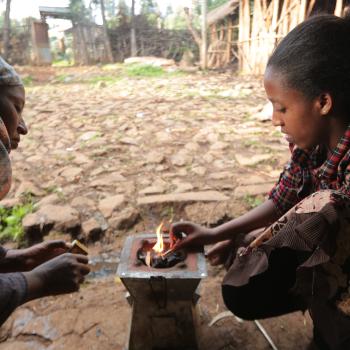
Young Lives Ethiopia is set to launch a sixth wave of qualitative longitudinal research, which aims to uncover how young people’s lives are changing in response to a series of overlapping crises: COVID-19, conflicts, escalating climate change, severe drought and rising inflation. The research seeks to explore how these challenges have affected the health and well-being of young Ethiopians and their children.
The sixth wave, which gets underway early next year, will involve in-depth interviews with young people in five communities across Ethiopia’s regions: Addis Ababa, Amhara, Oromia, Sidama, and Tigray. Researchers will interview respondents from the two study cohorts: the younger cohort, aged 23-24, and the older cohort, aged 30 -31. These interviews will build on five previous rounds of research conducted between 2007, 2008, 2011, 2014 and 2019.
Funded by the UK's Foreign, Commonwealth and Development Office and Irish Aid, this sixth wave will have a particular focus on investigating young people's health, including mother and child health, sexual reproductive health, mental health and disability.
Researchers also hope to uncover who fares better, and who really struggles in difficult circumstances, and what explains young people's resilience, making them able to cope better through crises. For instance, is it family support? Is it peer networks? Is it the community? Is it the services that are provided? These findings will be used to make suggestions that can influence policy to support young people as they navigate the complex and interconnected challenges Ethiopia's youth face today.
To hear more about this latest wave of qualitative investigation, tune in to our latest podcast episode, in which Young Lives Country Director Alula Pankhurst explains the unique value of combining a quantitative and qualitative approach to understanding young people’s lives, and talks listeners through the steps taken to set up this sixth wave, what he hopes the research will find out, and how the findings will be shared to shape policies.

Young Lives Ethiopia is set to launch a sixth wave of qualitative longitudinal research, which aims to uncover how young people’s lives are changing in response to a series of overlapping crises: COVID-19, conflicts, escalating climate change, severe drought and rising inflation. The research seeks to explore how these challenges have affected the health and well-being of young Ethiopians and their children.
The sixth wave, which gets underway early next year, will involve in-depth interviews with young people in five communities across Ethiopia’s regions: Addis Ababa, Amhara, Oromia, Sidama, and Tigray. Researchers will interview respondents from the two study cohorts: the younger cohort, aged 23-24, and the older cohort, aged 30 -31. These interviews will build on five previous rounds of research conducted between 2007, 2008, 2011, 2014 and 2019.
Funded by the UK's Foreign, Commonwealth and Development Office and Irish Aid, this sixth wave will have a particular focus on investigating young people's health, including mother and child health, sexual reproductive health, mental health and disability.
Researchers also hope to uncover who fares better, and who really struggles in difficult circumstances, and what explains young people's resilience, making them able to cope better through crises. For instance, is it family support? Is it peer networks? Is it the community? Is it the services that are provided? These findings will be used to make suggestions that can influence policy to support young people as they navigate the complex and interconnected challenges Ethiopia's youth face today.
To hear more about this latest wave of qualitative investigation, tune in to our latest podcast episode, in which Young Lives Country Director Alula Pankhurst explains the unique value of combining a quantitative and qualitative approach to understanding young people’s lives, and talks listeners through the steps taken to set up this sixth wave, what he hopes the research will find out, and how the findings will be shared to shape policies.

